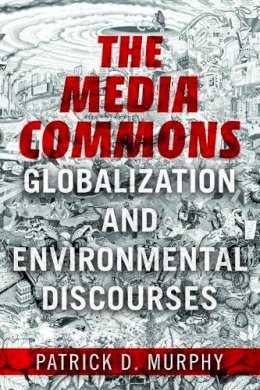
The Media Commons: Globalization and Environmental Discourses
Patrick D Murphy
The media draws the cultural boundaries of our environmental imagination--and influences just who benefits. Murphy's analysis emphasizes social context, institutional alignments, and commercial media's ways of rendering discussion. He identifies and examines key terms, phrases, and metaphors as well as the ways consumers are presented with ideas like agency and the place of nature. What emerges is the link between pervasive messaging and an "environment" conjured by our media-saturated social imagination. As the author shows, today's complex, integrated media networks shape, frame, and deliver many of our underlying ideas about the environment. Increasingly--and ominously--individuals and communities experience these ideas not only in the developed world but in the increasingly consumption-oriented Global South.
Product Details
About Patrick D Murphy
Reviews for The Media Commons: Globalization and Environmental Discourses
Mass Communication and Society "How is it that in less than four years Discovery replaced Ten Ways to Save the Planet with programming encouraging meat consumption, while The Walking Dead now provides post-apocalyptic survival techniques to a global audience? Murphy provides essential scholarship of environmental discourses within the politics and economies of transnational media."
Libby Lester, author of Media and Environment: Conflict, Politics and the News "This book is addressing a universal crisis that right now, as we speak, is rapidly mainstreaming. It is a text that will be recognized as a critically important, highly innovative, and possibly paradigm-changing contribution to our understanding of how mediated discourses work to destroy our planet."
Oliver Boyd-Barrett, author of Communications Media, Globalization, and Empire "Murphy skillfully unpacks the links among the institutions, ideology, and messages of global media systems and our imaginaries of the environment. The result is a scathing critique of the absorptive capacity of a market-driven, 'Promethean' discourse that elides social agency in response to our global ecological tensions."
Robert Cox, coeditor of The Routledge Handbook of Environment and Communication "The book's approach produces an interesting and unique contribution that should be required reading for scholars and students."
European Journal of Communication
